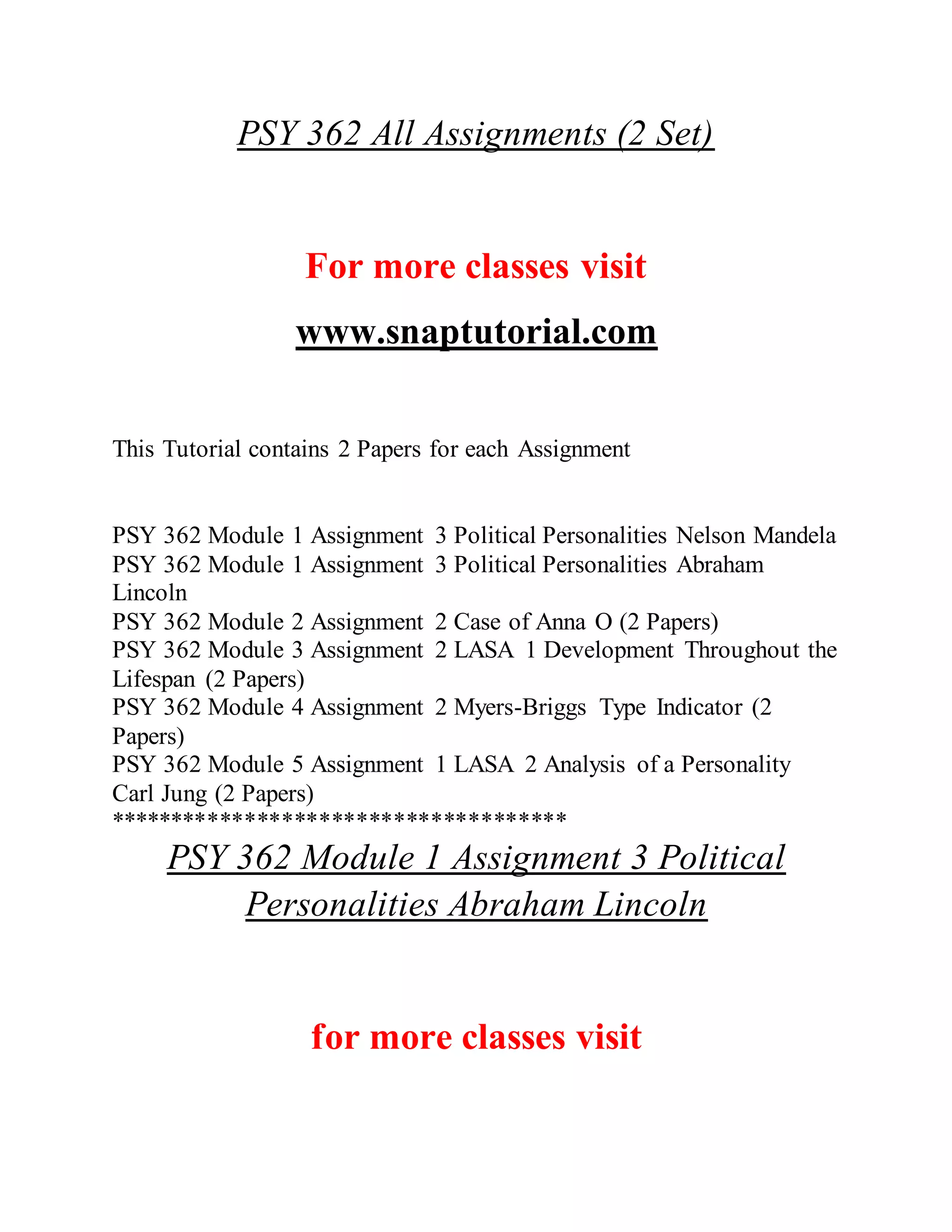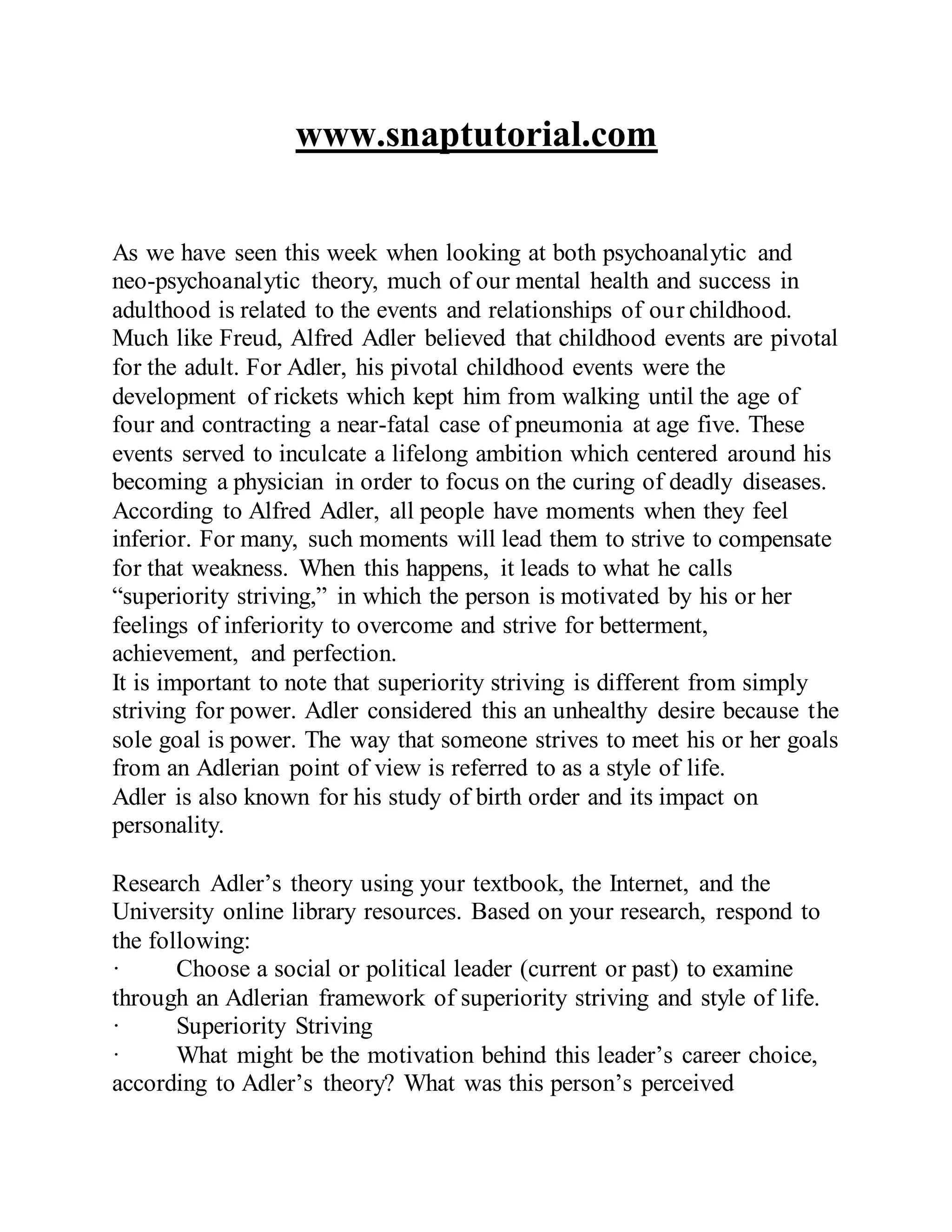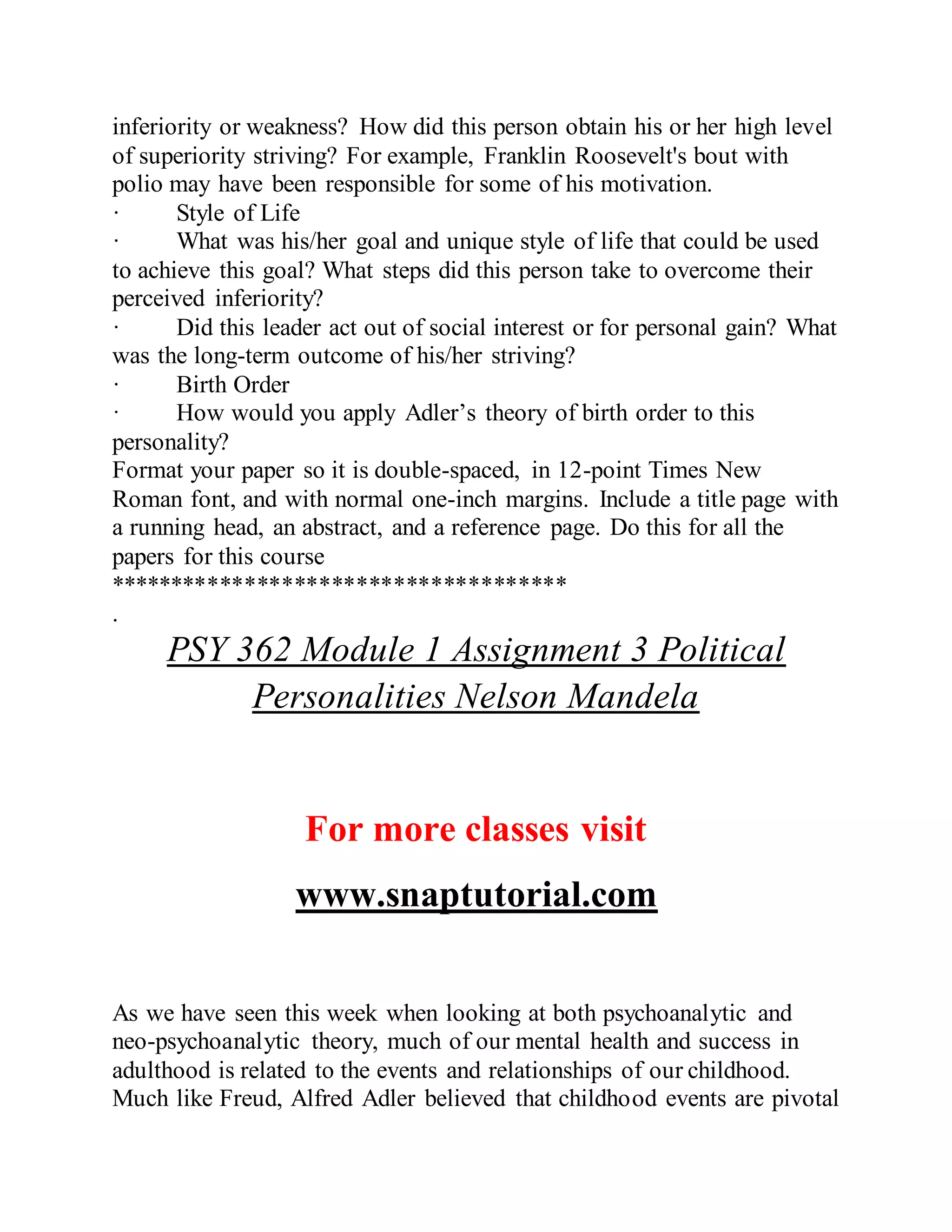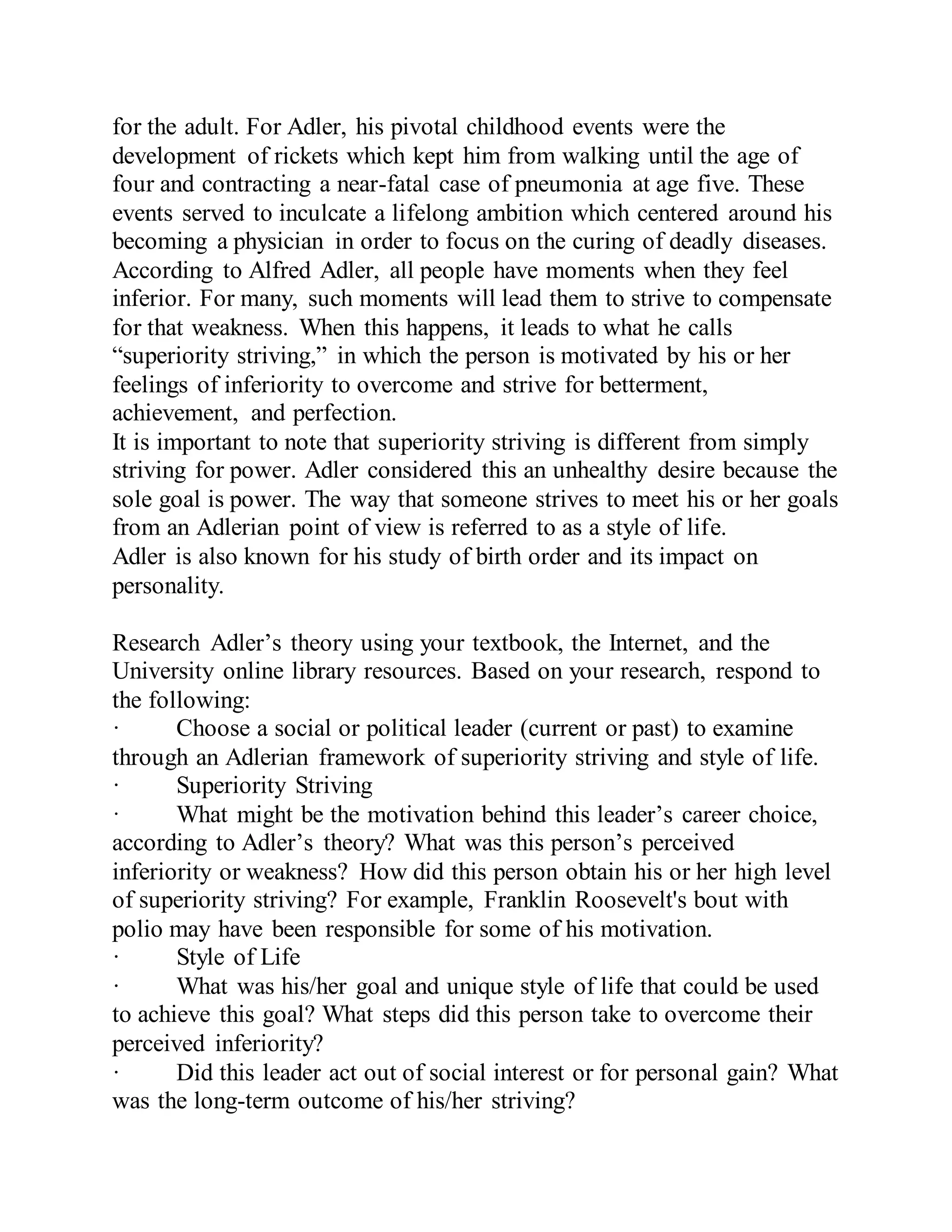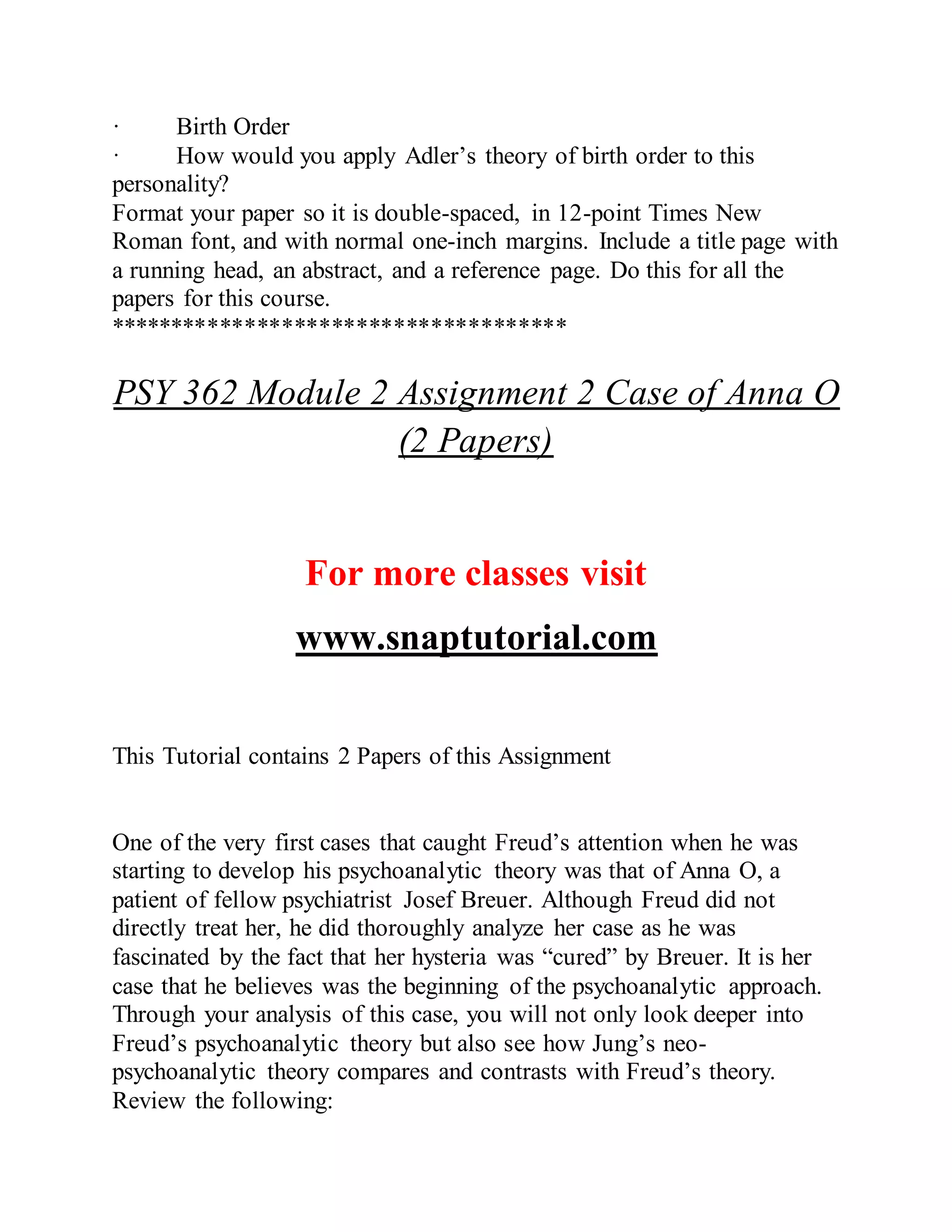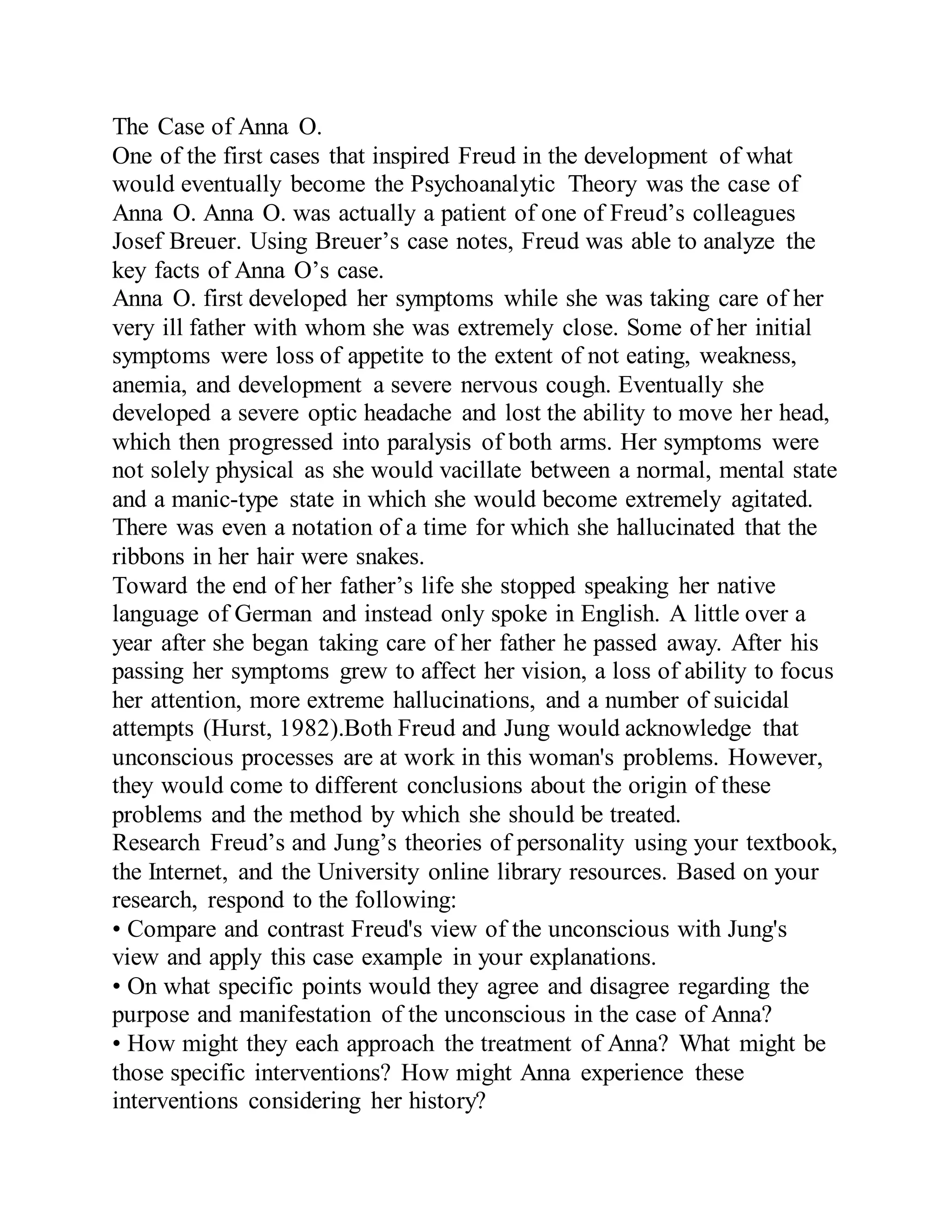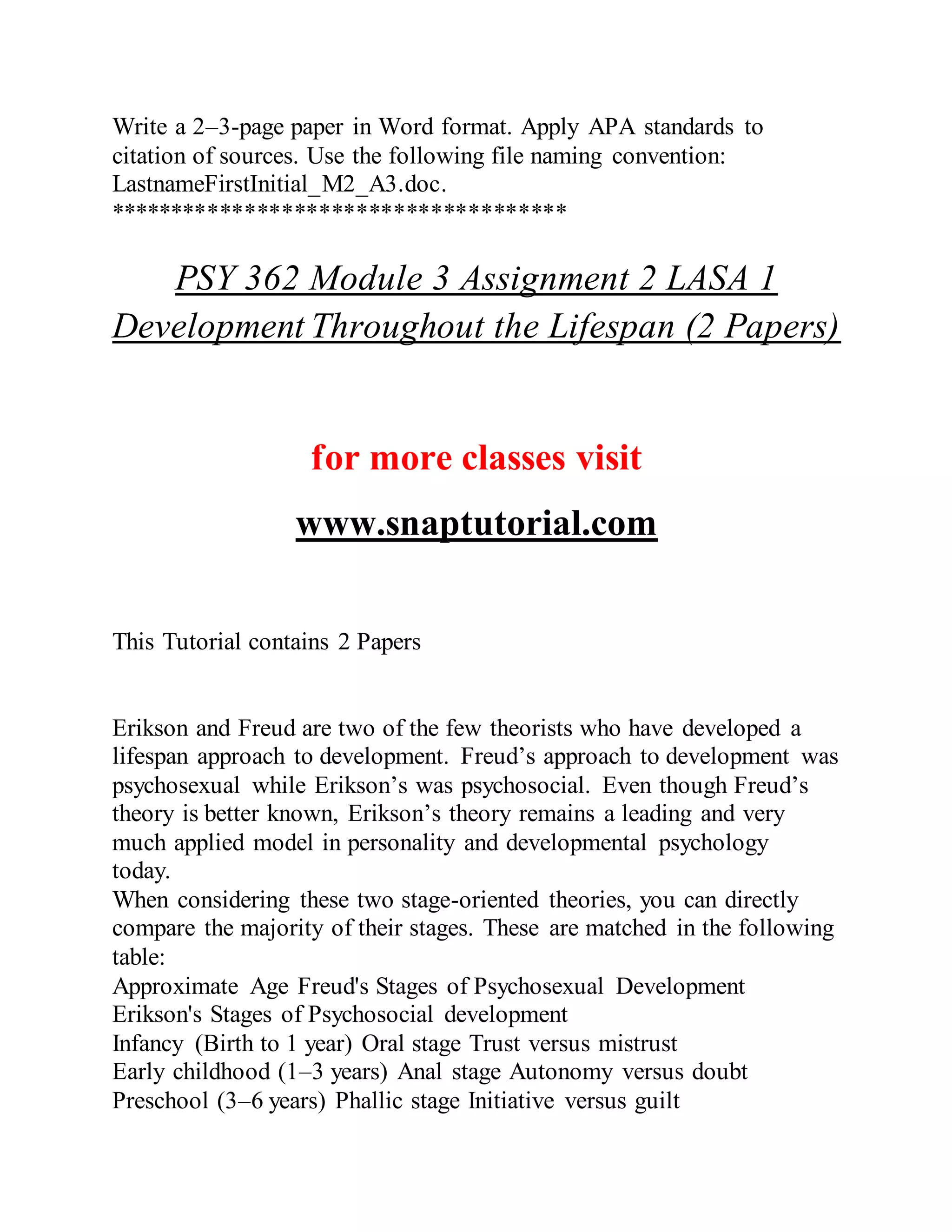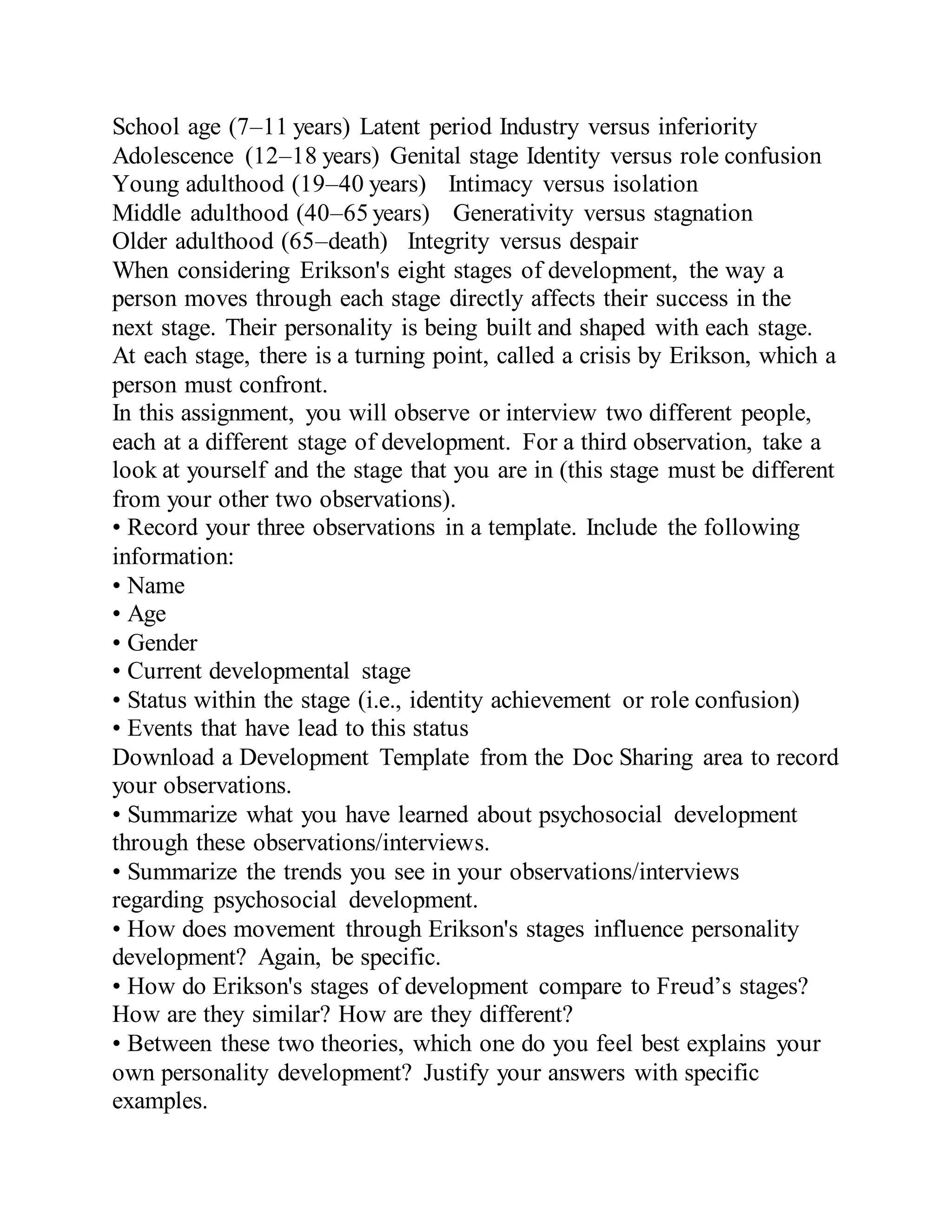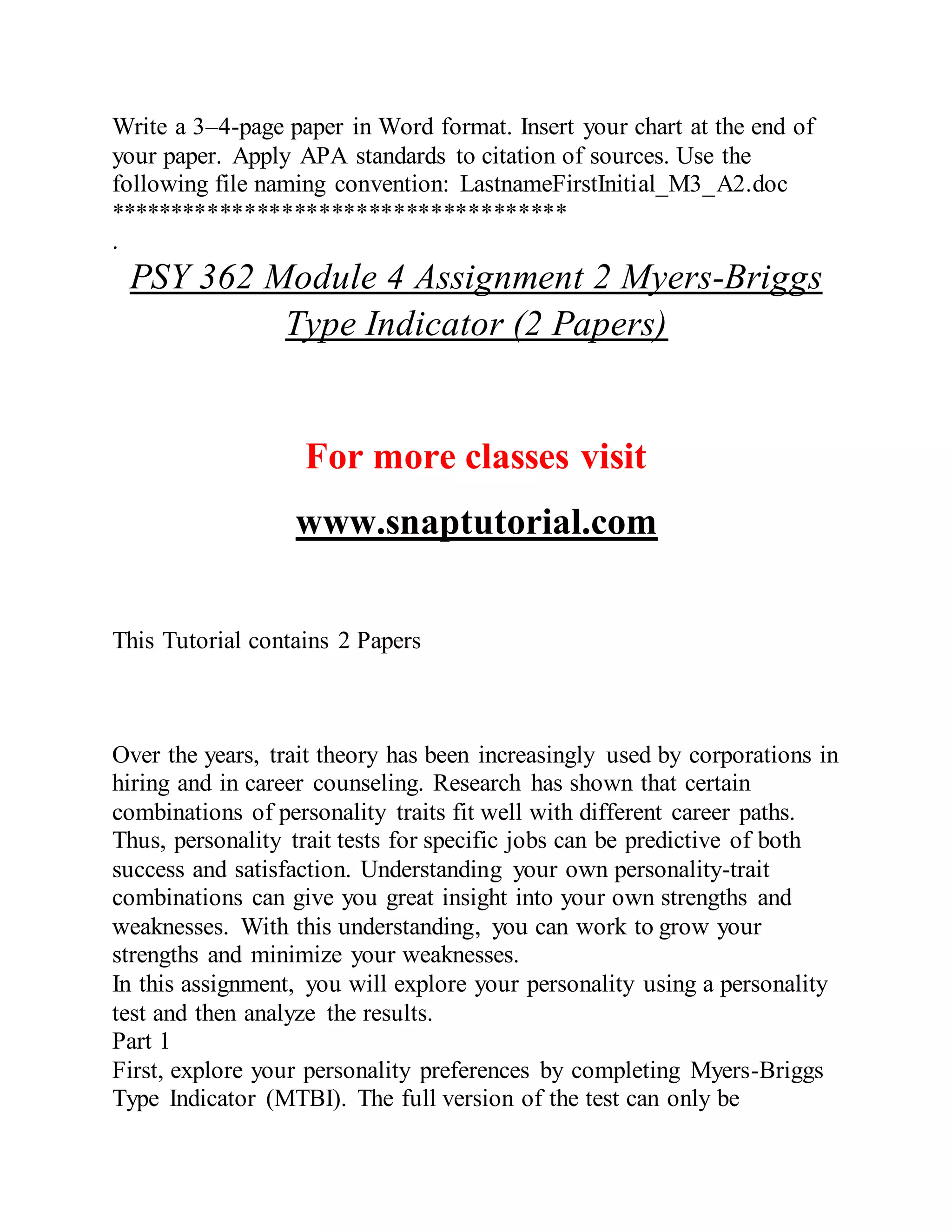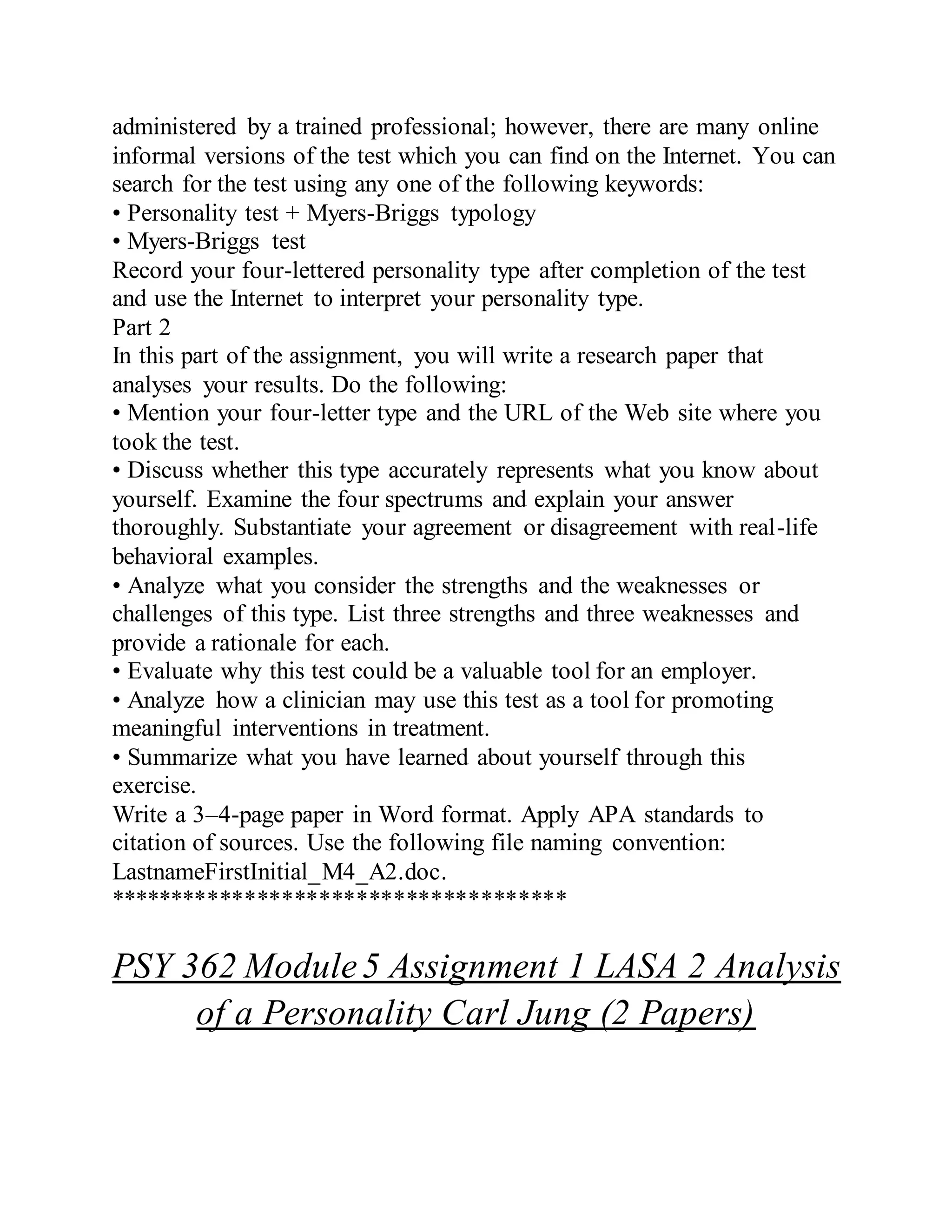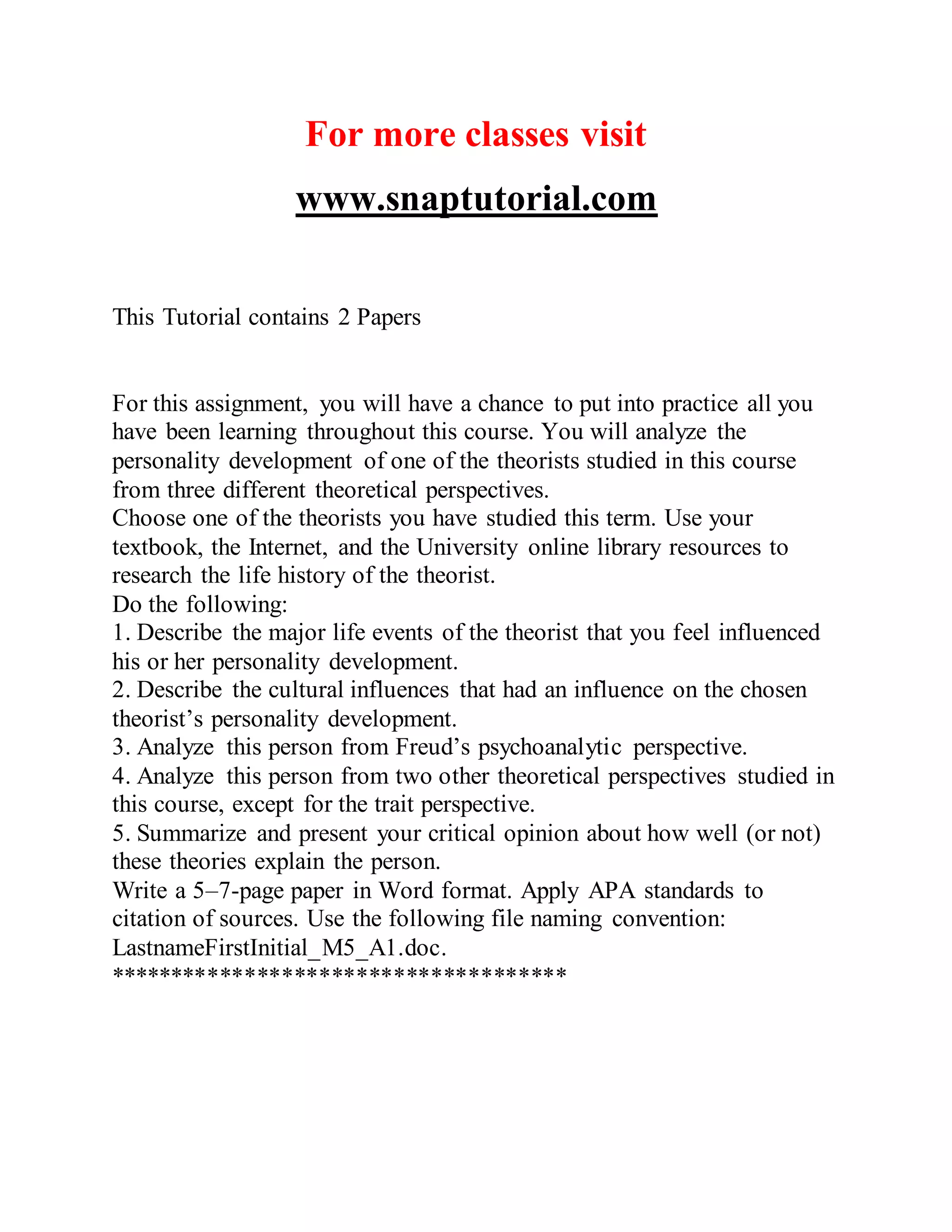The document outlines a collection of assignments for a psychology course (PSY 362), including analyses of political personalities through Adlerian theories, studies of notable psychological cases like Anna O, comparisons of Freud's and Erikson's developmental theories, and evaluations of personality types using the Myers-Briggs Type Indicator. Each assignment requires research and critical thinking on significant psychological theories and figures, emphasizing the application of these theories to real-life examples and personal development. Formatting guidelines and specific tasks for each assignment are provided, ensuring students engage deeply with the course material.
